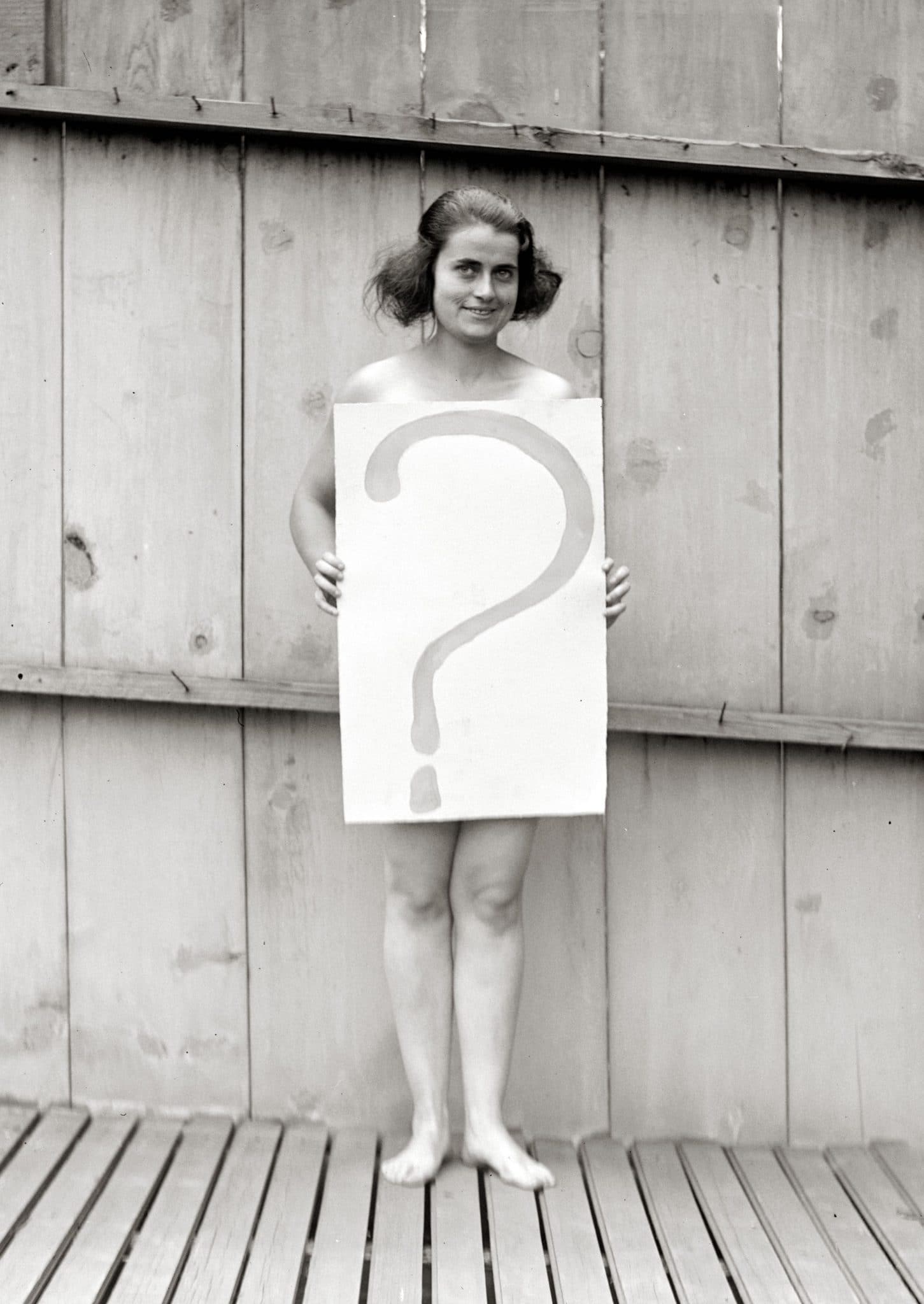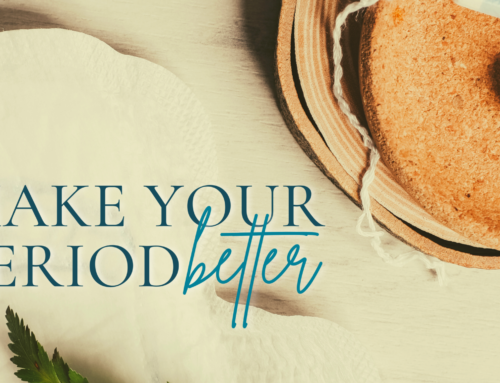Before I even begin this article, let me warn you that there will be more questions than answers here. Even so, the questions need to be asked; the conversations need to begin.
Why are women so fearful of childbirth? So much so that for many the thought of natural childbirth these days (without pain medication at all) is only for the “crazy women” or “superwomen.” With the “normal” woman saying, “I’m just not cut out for that! I’m definitely not that strong!” Why do we fear our periods? Or perhaps the better way to ask it would be: why do we wish we never had them or want to hide that we do? We want it washed away, clean, tidy and a woman’s cycle is anything but. We don’t want to think about it. So, when we are given an option that makes it go away, we take it because it is easier that way. But wait! Since when have other people decided what was best for our bodies rather than listening to our bodies themselves?
Another question, why do women think they can’t breastfeed their children? I’m not talking about the extreme cases where it is impossible, but the average case where she just is surrounded in doubt. Is it because it begins in a very challenging way? Perhaps it is just easier to give the child a bottle? Why do we fear rather than trust our bodies? Who told us we couldn’t do it? Who told us that what our bodies do needs to be fixed?
From the beginning of time, women have been the ones with the unique ability to give birth. Through puberty their bodies begin the monthly life potential cycle, and they know they have begun their womanhood. And even in cultures where women may have been considered unclean during their monthly menstruation, blood was also considered sacred – it was the life force. Breastfeeding was the nourishment of life.
Even in the Old Testament, we see the womb and the suckling child as holy places – even resembling God. In Isaiah 42:14, God cries out like a woman in labor – her forceful breath of labor becomes an image of divine power. In Isaiah 49:15, God compares Himself to a woman who has given birth and breastfed. This is used to describe God’s intense love for His people. Also in Deuteronomy 32:18, God is compared to a woman who gives birth. Giving birth and breastfeeding are images of divine power – bursting forth life and sustaining it.
It is not her ability to work well in society, have a career or be a leader that is divine, but it is that which is her most utterly feminine part. It is the most womanly aspect of her that resembles the divine; it is that which distinguishes her from man, her ability to grow new life within her womb, give birth to that child and then nourish the child from her body.
Yet, that was in ancient times. We are educated now. We have science and so we don’t really need religion to guide us anymore; we can explain everything. We know how the body works and we can manipulate and control it. We can cure many diseases and even take away pain. We are so much wiser now. Or are we? Are we trying to fool with Nature? Natural Law, the way we are created, is a powerful force.
If we are so much wiser, what are we afraid of? We, as women, seem to be afraid of our bodies, our very femininity itself. We doubt ourselves constantly. Can I breastfeed? Maybe my body isn’t made for giving birth; should I just schedule a C-section?
I would like to know what you think. My theory is that society is pushing the manipulation of the body. The woman is told she doesn’t need to have a baby; it will be a burden. In fact, she can actually turn off her fertility all together with just a pill. This is for her own good, she is told, so that she can live her life without those “burdens.” Yet, what does this convey to woman except that the very thing that makes her woman is not good?
Yet, even when society bombards her with a negative view of her femininity, she still yearns to create life. However, the feminine process that ought to be a vigorous reflection of divine power becomes a weak, timid image asking in a small voice, “Can I do this? Do I have the strength? I think I can, but I’m not sure anymore. Am I good enough?” Perhaps she is afraid of what she is capable of, because we no longer exclaim her as the reflection of the life force of the Creator, but instead we push her aside with a mere shrug, “well, if you want to do that, I guess you can try.” This same society is claiming to “liberate” her; she is now freed from her burden of femininity. Yet she is still woman. She is still feminine. And instead of feeling empowered and free, she is lost and weakened. She tries society’s vision and it’s okay, but not completely filling. Then she turns to her own femininity and doesn’t know what to make of it anymore. She doesn’t know who she is because that which makes her woman, her femininity, has been brushed aside.
Being a woman ought to be empowering. The blood flow that cycles through her touches back through the ages and forward into the future; it is the life cycle of the history of humanity. Greatness does not come easily; however, and bringing life into the world takes great strain. Yet, it is not a worthless pain but a powerful, divine cry of life. I don’t blame women for being afraid; they haven’t been given much to believe in when they learned about their bodies. Perhaps, as we move forward, though, we can give them the support, love and knowledge they need to know that being woman is the highest of callings. And maybe – we hope! – that one day women will be able to take a journey in understanding their femininity and welcoming the deep, beautiful, strenuous, divine strength that bursts forth in the power of bringing life into the world!
To understand more deeply what I mean, I recorded my youngest son’s birth story here.




One difficulty I find with your post is that, in the Old Testament, women’s sacredness was founded upon their child-birthing and child-rearing abilities so as to juxtapose men’s sacredness in their intelligence, strength, and power. Men were close to God in their brains and brauns; women were close to God in their fertility (God forbid someone be infertile!) and their breastfeeding.
If you continue to hold, as you seem to, that a woman’s divinity comes from solely from her natural ability to have children and breastfeeding (even though a significant portion of the population struggles with both of these things), where does that place the things she has in common with men–intelligence, wisdom, love? Does masculine divinity come from strength, as it did in the Old Testament as well?
I prefer to see women’s worth and divinity as coming from all the sides of what makes us human, both from those which are dissimilar and those which are the same as our male counterparts. Or, extending your thoughts, does a man’s divinity somehow come mainly from his part in the childmaking process?
To Anonymous Feminist,
Thank you for your comment! It gives me a chance to clarify. In this post I am not giving an extensive list of all that defines woman’s worth. (If you’d like my thoughts on that, please check out my book: Woman How Great Thou Art. http://www.amazon.com/Woman-How-Great-Thou-Art/dp/0988772930/ref=tmm_pap_title_0?ie=UTF8&qid=1375112323&sr=8-1)
instead – in this short post, I am solely focusing on her gifts of fertility, childbearing & breastfeeding. These are the gifts that seem to be slighted by the world and are most precious to her womanhood. Her worth is definitely not ONLY found there! Of course not – you are very right. Yet, it behooves us to focus on why these particular gifts do have merit and value (especially when the culture seems to tell us otherwise.)
I see this doubt all the time too as an NFP instructor. Before taking even a single class, so many women doubt that they will be able to understand their bodies and be able to use NFP with confidence. 🙁
This is amazing and just the thing women need to know, I gave birth five years ago. It started off feeling so powerful when i was in control. They gave me a epidural and I lost that power instead of my body telling me what to do the nurses filled that role. I encourage women to fill that incredible power and not let anyone mute it, bc we were ment to feel it; it is the fire we are reborn in.